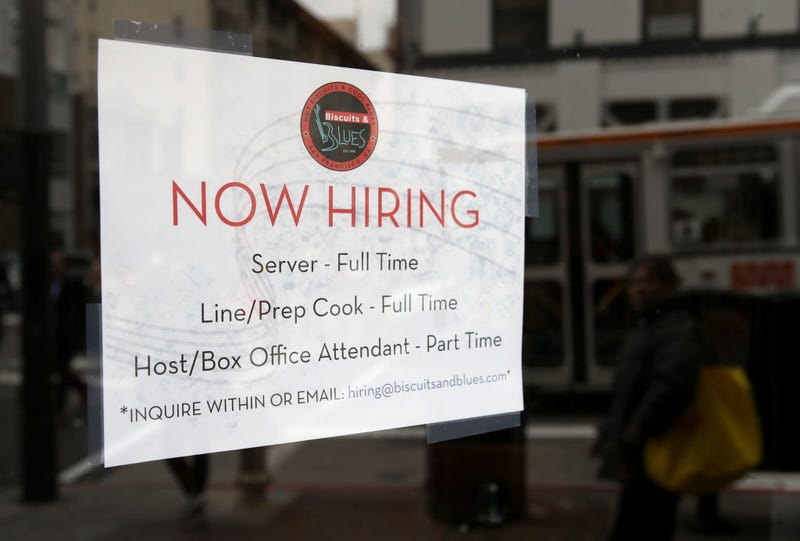
California will lift the vast majority of its coronavirus-related restrictions overnight on Tuesday, but don’t expect the state’s economy to instantly look like it did before the pandemic began.
Jerry Nickelsburg, the director of UCLA Anderson Forecast and an adjunct economics professor at the university, said Monday on KCBS Radio’s "The State of California" that the reopening of the state’s economy will be "a relatively slow process" for bars, restaurants and other "high human contact" industries.
"The real constraints are that, in particular areas and particular sectors, we're going to have labor supply constraints and that will ease up with the opening up of daycare and schools," Nickelsburg told KCBS Radio.
He added that in the near term, it will "certainly" slow the return to work for many people.
In March, CalMatters reported that 8,500 licensed child care sites had closed in the state since the start of the pandemic.
Gov. Gavin Newsom announced last month the state will require in-person learning beginning June 30, but EduSource reported last month that only 13% of public-school students had resumed five-day-a-week, in-person instruction by the end of April.
Nickelsburg said this has had a particular impact upon bars and restaurants, as owners in both sectors have struggled to hire employees as conditions improve amid the pandemic. Some have complained of a "labor shortage," while other economists and politicians have pointed the finger at expanded unemployment benefits.
While there are anecdotal examples of workers not returning due to increased unemployment insurance, that isn’t the driving force of some sectors struggling to hire employees, according to Nickelsburg.
Those challenges won’t end overnight on Tuesday, he said.
"There's no real evidence that the augmented unemployment insurance is holding back people from entering the labor force, particularly in these high human contact sectors,” Nickelsburg said. "If a single mother or a person who has someone at home who might be at risk of a bad outcome were they to be infected with (COVID-19) is offered a job at the restaurant, they're not going to go back."
He emphasized the importance of people not only finding childcare but feeling safe enough to go back to work.
"The augmented unemployment insurance just provides them with a cushion as they're facing this public health crisis," Nickelsburg said.

